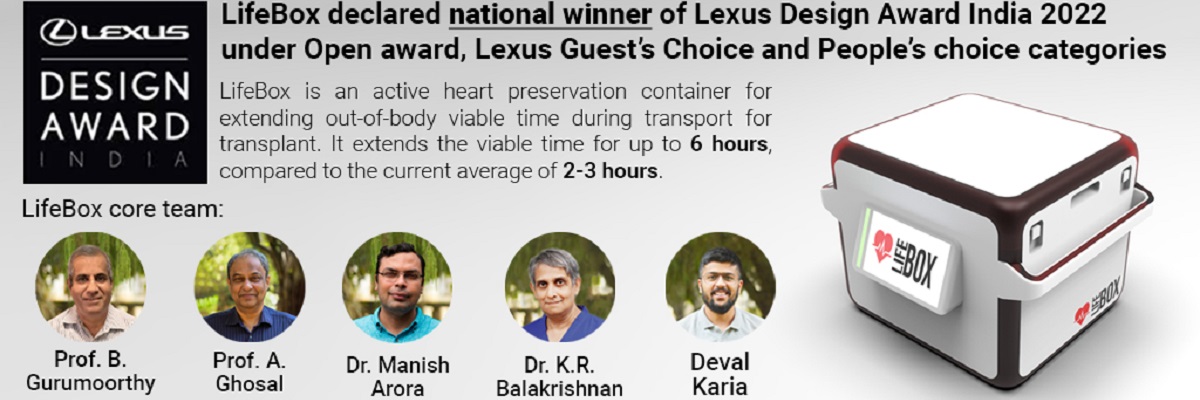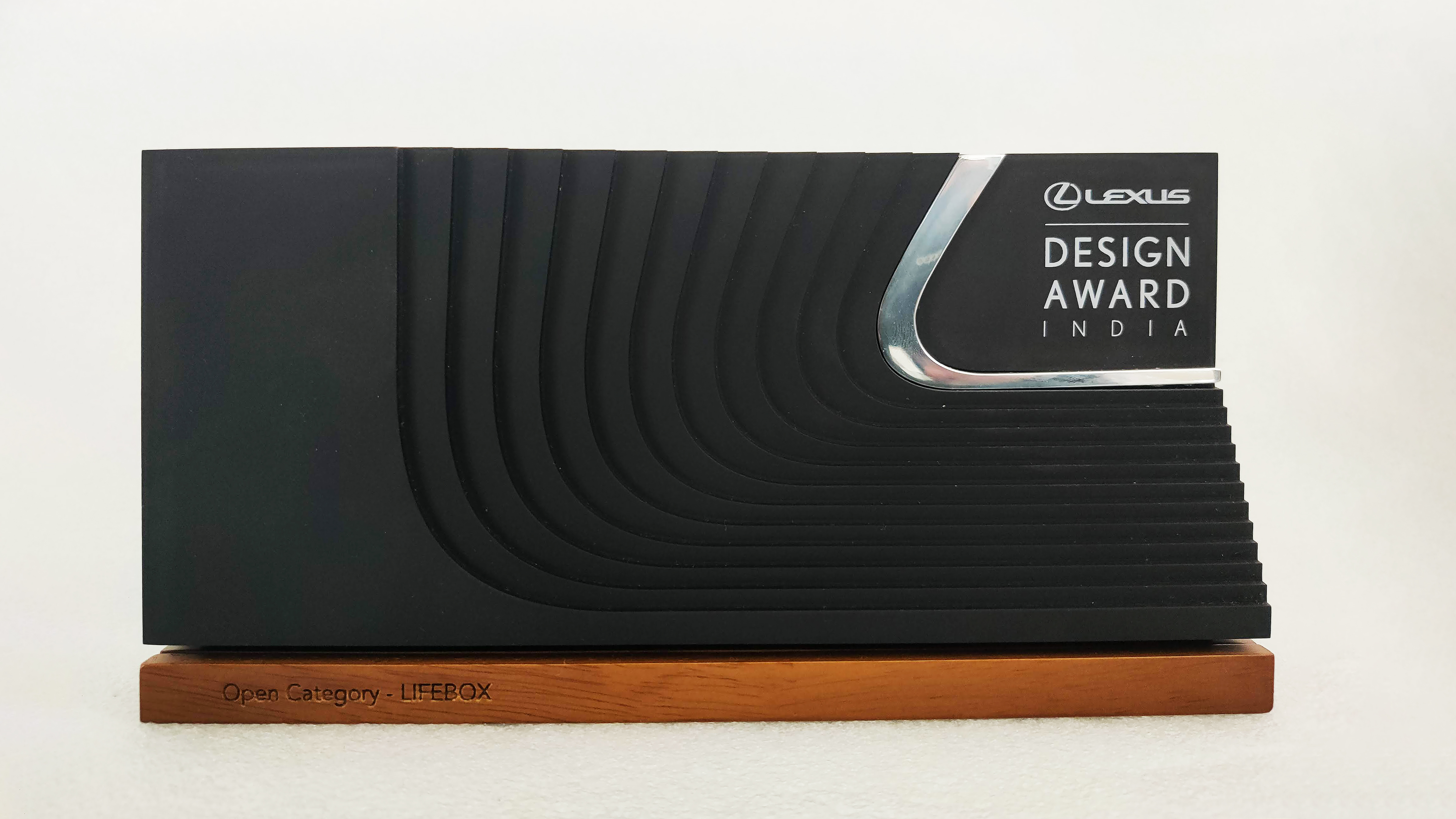
LifeBox, an active heart preservation container for extending out-of-body viable time during transport for transplant, which was the National winner of the James Dyson Design Award 2021 (https://www.jamesdysonaward.org/2021/project/lifebox/) has been declared as the National winner of the prestigious Lexus Design Award India (LDAI) 2022 under the Open award category, Lexus Guest’s choice award and People’s choice award from over 650 high-quality entries. (https://lexusdesign.in/#home)

LifeBox was designed by Mr. Deval Karia under the guidance of Prof. B. Gurumoorthy, Prof. Ashitava Ghosal and Dr. Manish Arora at the Design Innovation Centre, CPDM, IISc (https://cpdm.iisc.ac.in/desic/) in collaboration with MGM Healthcare, Chennai. The current LifeBox team comprises of Arjun Gopkumar, Jagadeesh B., Gaurav Chandavarkar, Swetha Krishnan, Nanditha Sathyanarayanan, Srihitha Reddy. Past members include Shreyas N.R., Neil Doshi and Aditya Saxena. The project has also been awarded the PACE grant by the BIRAC, Department of Biotechnology, Government of India with a mandate to further develop the device and conduct clinical investigations.
Link to proof-of-concept and prototype demonstration video:
https://www.youtube.com/watch?v=2EBOXRENgzE
The 5th edition of LDAI was held virtually with the theme “Design for a Better Tomorrow – Anticipate. Innovate. Captivate”. The contest was open to design professionals, students, and design enthusiasts for original and conceptual work in industrial design ideas, concepts & explorations that attempt to embody the values of innovation, sustainability, usability, aesthetic refinement, and industrial craftsmanship in accordance with the theme.
The judging criteria were as follows:
Anticipate: on how the concept and design anticipate global challenges facing future society?
Innovate: on how the design demonstrate new thinking and originality both in the proposal and in the execution?
Captivate: on how the design intrigue and compel when realized in concept and execution?
Enhance Happiness: on how the design brings happiness to all?
Three finalists were chosen from each of the ten categories (from among 650 entrants) and received an exclusive mentorship program led by stalwarts of the design industry. LifeBox was mentored by Mr. Narendra Ghate, Chief Designer, TATA Elxsi. Mr. Ghate provided valuable recommendations and key insights which allowed for further refinement and significant improvement of the conceptual design.
An eminent jury comprising experienced practicing designers, academics, and design thinkers evaluated the finalists and chose one winner from each category. The jury deliberations were conducted in an open and transparent manner wherein a team of observers, with senior members of ADI (Association of Designers of India) and select members of the press were allowed to watch and listen to the jury’s deliberations while they choose winners.
LifeBox, along with the winning designs, will be promoted on Lexus India’s digital space along with Guest Experience Centers across the country.
The special awards i.e., the People’s Choice and Lexus Guests’ Choice were voted by members of the public and Lexus guests respectively.
The LifeBox project outcomes have been published in reputed international conferences and covered by multiple media outlets.
Links to media coverage:
https://www.theweek.in/wire-updates/business/2022/02/10/pwr35-lexus-india.html
https://www.prnewswire.com/in/news-releases/lexus-design-award-india-2022-5-years-of-nurturing-the-next-generation-of-designers-in-india-867937795.html
https://indianexpress.com/article/education/iisc-bangalore-student-invents-active-heart-preservation-container-wins-james-dyson-award-2021-in-india-7522019/
https://timesofindia.indiatimes.com/home/science/iisc-lifebox-to-aid-organ-transfer-by-drones/articleshow/64450470.cms
Reference:
Karia, D., Rathnam, R., Saxena, A., Joshi, M., Ghosal, A., Arora, M. and Gurumoorthy, B., 2021. Design of a Heart Perfusion Device for Extending Preservation Time: A Case Study of Risk Management for a High-Risk Medical Device. In Design for Tomorrow—Volume 3 (pp. 679-692). Springer, Singapore.
https://link.springer.com/chapter/10.1007/978-981-16-0084-5_56



